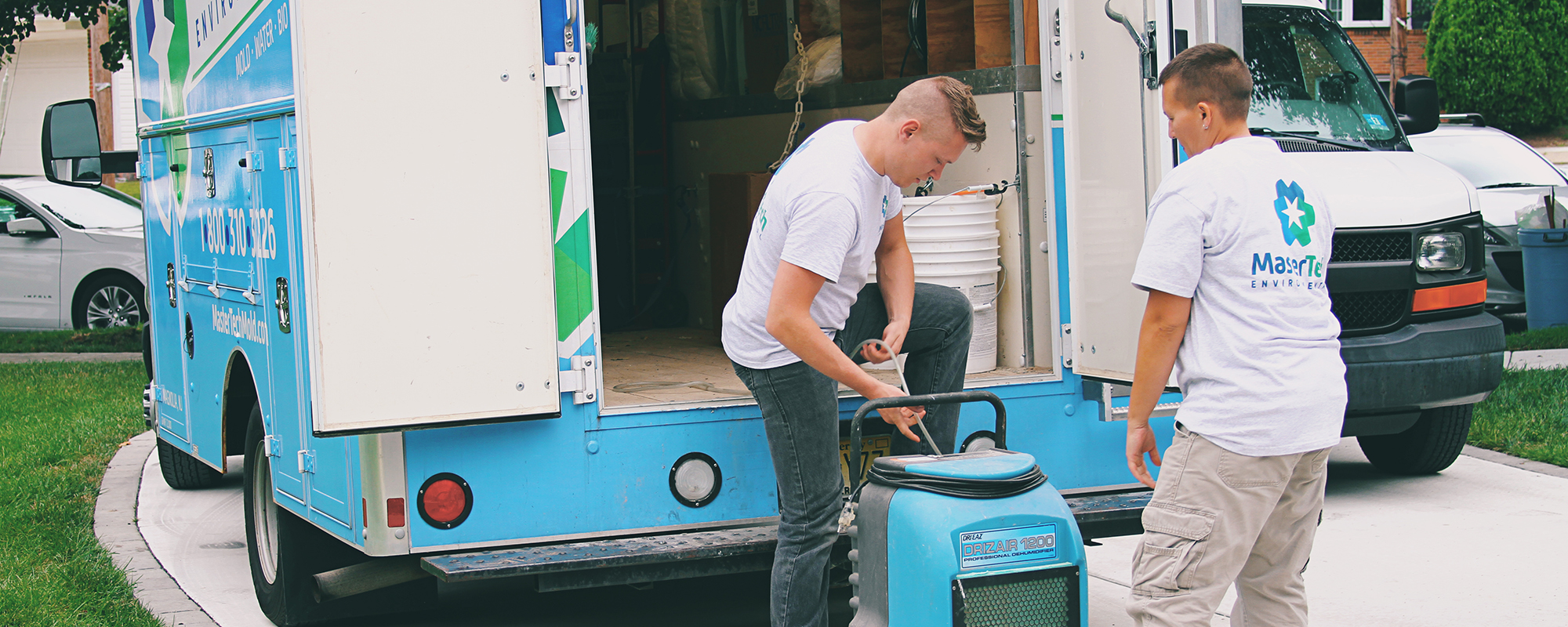Avoiding Mold After Serious Flooding
Serious flood damage and water damage can leave your home with mold issues if not properly remediated. Flooding can be caused by a variety of major water issues. These water issues include natural disasters, severe leaks within the home, and heavy rainfall. This water damage from flooding can leave your home vulnerable to the development of mold and moisture issues.
As soon as the flood damage occurs, it is imperative to act as quickly as possible. The more time the water has to sit stagnantly, the more severe the damage becomes. Your home must be thoroughly dried out promptly, and any contents or building materials that are beyond repair must be disposed of. These items and materials can remain a constant source of mold development if not removed from the home. As you are beginning the flood cleanup process, be sure that you are aware of potential risks for mold growth. Be on the lookout for any signs of mold development, such as staining, musty odors, and powdery spotting. Mold growth in your home can create a variety of issues for the home and its inhabitants. Severe damage & compromised structural integrity to the property, as well as some health side effects may potentially occur. However, keep in mind that everyone reacts differently to mold and allergens. It is best to be aware of the possibility of health effects whether you are affected or not.
Promptly Clean Up Flood Damage
Mold development only takes 24-48 hours in the presence of a moisture source. It is imperative that you do not wait when it comes to drying out flooded areas. Wasted time will leave your property even more damaged, and cleanup even more expensive. Even the slightest bit of moisture can be detrimental to the property. A small amount of stagnant moisture can create water vapor that rises and seeps into porous building materials. Materials that weren’t originally damaged can be affected by these vapors, leading to mold development.
When In Doubt, Schedule A Mold Inspection
You may not see any signs of mold growth following flood damage, but a mold inspection can prevent an issue you haven’t noticed. Maybe you waited too long to address the flood, or perhaps there is some residual moisture that could be promoting mold development. Regardless of the specifics, consider scheduling an inspection with a professional mold remediation company near you. Mold comes in many different forms, both visible and invisible. Sometimes it can simply go unnoticed.
A few telltale signs of mold damage in an area include:
- Odor: Mold’s organic, musty odor is a dead giveaway. If the area where the flood occurred is beginning to smell a bit musty, a mold inspection is needed.

- Staining: Flooding will naturally cause some staining on porous building materials such as wood. As long as it has been properly dried out, there should be no issue. However it is always better to be safe than sorry, so a mold inspection is the way to go.
- Visible Spores: This one is a no-brainer. If you can physically see mold spores developing in the area of the flood, get an inspection. Just like with the flood damage cleanup, it is imperative you act quickly. You don’t want to let the mold continue spreading.
- Excess Humidity: Something as mundane as excess humidity could be the source of a mold issue. If the previously flooded area is experiencing humidity, this may be sustaining mold development.
 A thorough mold inspector will be able to determine whether or not there is mold, as well as the severity of the damage. They will be able to discover the source of the moisture issue, then develop an effective plan for mold removal. Your inspector can also propose tactics to help prevent the recurrence of mold development. Should the mold inspection confirm the presence of mold, early detection of mold development allows you to properly address the issue before it spreads any further. Begin your remediation ASAP when you discover mold development. It will truly make all the difference. Even if the inspection comes up negative for mold, it is always better to know for certain that there’s nothing to worry about.
A thorough mold inspector will be able to determine whether or not there is mold, as well as the severity of the damage. They will be able to discover the source of the moisture issue, then develop an effective plan for mold removal. Your inspector can also propose tactics to help prevent the recurrence of mold development. Should the mold inspection confirm the presence of mold, early detection of mold development allows you to properly address the issue before it spreads any further. Begin your remediation ASAP when you discover mold development. It will truly make all the difference. Even if the inspection comes up negative for mold, it is always better to know for certain that there’s nothing to worry about.
Mold Remediation In Your Home After Flood Damage
You may have discovered or are suspecting mold development in your home following a flood. The potential for error when drying out flood damage leaves your home at a higher risk for mold development. While it may not be necessary to employ professional mold removal services, leave it to the experts to confirm that there’s no issue. For your own peace of mind, the best thing to do is to schedule a mold inspection with a professional mold removal company in your area.



